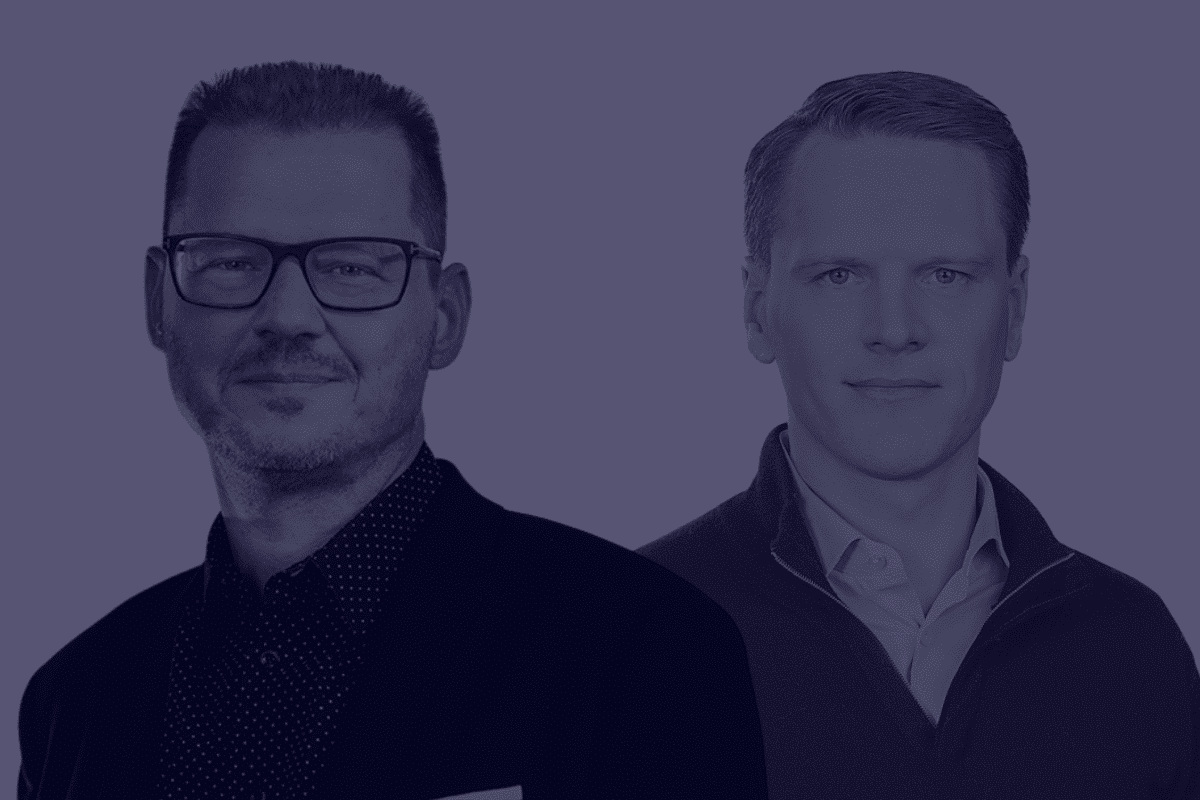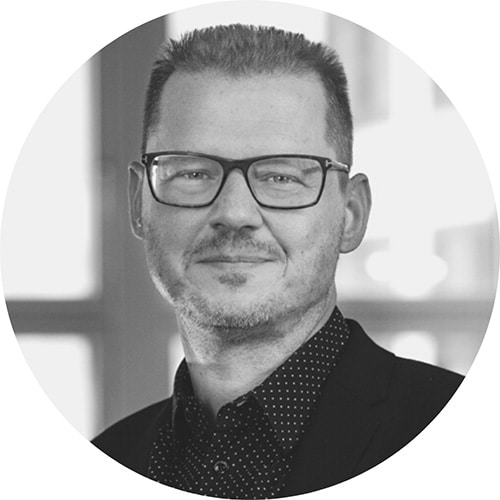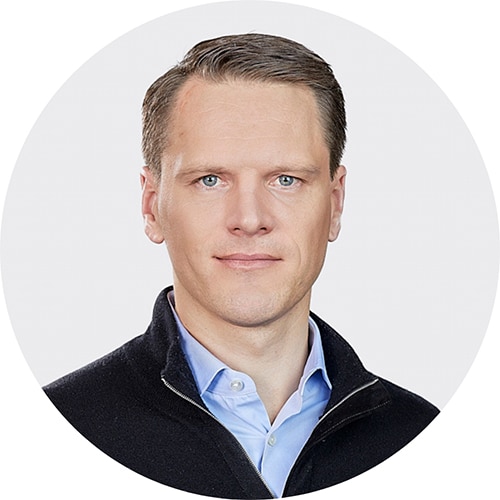Stephan, we worked closely together for three to four years during the process of my company’s sale to Funke Mediengruppe. What I found very impressive during that time was Funke’s founder-friendly approach. How would you describe Funke’s concept of founder integration? What sets it apart from other companies?
Stephan: Funke is indeed a corporation, but it’s also a family-owned business. We don’t chase quarterly goals; instead, our focus is on generating sustainable success and remaining in the publishing sector. That’s the mission we have as Funke.
It has been and continues to be important for us to win entrepreneurs as partners, even beyond the earn-out period. Especially back in the phase when we were learning a lot in the digitalization space. However, we always understood that entrepreneurial personalities don’t like to be confined to a rigid framework; they want to be creative and contribute their own ideas. But within a corporation, there are, of course, certain boundaries within which one must operate.
Deshalb bemühen wir uns, einen guten Mittelweg zu finden und Gründern ein attraktives Angebot zu unterbreiten, sozusagen eine Art Menükarte anzubieten. Denn es gibt immer Bereiche, in denen wir als Konzern besser aufgestellt sind. Zum Beispiel verfügen wir über eine eigene Rechtsabteilung, was die meisten Start-ups nicht haben. Während der Corona-Pandemie konnten sich unsere kleinen Digitalbeteiligungen mit zehn Mitarbeitern impfen lassen, weil wir das als Mutterkonzern organisiert haben. Das hätten sie alleine nicht geschafft. Das mag zwar wie eine Kleinigkeit erscheinen, hat jedoch enorme Auswirkungen. In Zeiten wie diesen schätzen die Unternehmen den Vorteil, ein Mutterschiff zu haben, das sie durch Krisen tragen kann.
Christoph, you are a great example of how to continue working together and developing new projects beyond the earn-out period. That’s precisely our goal.
Christoph: What was particularly helpful to me after the sale was this grace period. You presented your menu of options, but we didn’t have to make all the changes immediately. I could first speak with other founders who had gone through the integration process. The team could also gradually adapt to the new structures. For some things, we decided using the pull approach: we didn’t have to do it yet, but we wanted to. Other things weren’t necessarily enriching for us, but we had to implement them. However, it was okay because the overall package of push and pull worked well.
We don’t chase quarterly goals; instead, we aim to create sustainable success and remain in the publishing sector. That’s the mission we have at Funke.
How has your approach evolved from the initial acquisitions to the present day? Are there any significant changes in how you operate?
Stephan: The fundamental philosophy has remained the same. We have gained more experience in integration over time. Funke has always been involved in M&A, but primarily in the publishing world. There’s a difference between acquiring a newspaper as Funke and acquiring a digital startup with 20 employees. It comes with a very different corporate culture. Our understanding of the differences and the challenges they pose for integration has grown. Even from a practical standpoint, the integration work becomes easier in terms of accounting, controlling, etc., when you’ve done it a few times. However, it’s always a work in progress. You have to continuously refine the process, and that’s what we do with every deal.
What particularly helped me after the sale was this grace period. You presented your menu of options, but we didn’t have to make all the changes immediately. I could first speak with other founders who had gone through the integration process. The team could also gradually adapt to the new structures.
As a PE fund, we naturally have a lot of contact with founders looking to sell their companies. What would you tell them? What should they expect when selling to a corporation, and what can they expect when dealing with Funke?
Stephan: Whether a PE fund or a corporation is the better choice depends on the buyer’s strategy. At Funke, we are a strategic investor. We aim to acquire, develop, and retain companies. PE, on the other hand, is typically interested in selling companies further down the line.
When choosing to collaborate with a Private Equity (PE) fund, the advantage is that everyone is aligned when it comes to goals: achieving a successful exit. It’s extremely rigorous, and there’s a tight timeline. With a strategic investor, it’s different. They can provide support in many areas and often bring cluster expertise, like in our case, the media sector. However, because they have a long-term perspective, a different approach is needed for management incentivization. After the earn-out, the company eventually becomes a standard digital company that generates profits with certain margins. It’s a different game. We don’t have time pressure. We sometimes follow the Buy and Build approach and assess which acquisitions can still make sense for a specific topic. However, with PE, incentivization can be somewhat easier.
Christoph: What I found interesting is that when I left after about three years, the majority of the team stayed, and to this day, no one has said a bad word about Funke. In hindsight, it showed us that we had found the right partner. Many managers, including the CTO and the Head of Sales, were there from the beginning and then entered a phase in life with family and children where the corporation was precisely the right environment. They no longer had to go at full throttle every day; instead, they could give things the time they needed.
Whether a PE fund or a corporation is the better choice depends on the buyer’s strategy. At Funke, we are a strategic investor. We aim to acquire, develop, and retain companies.













